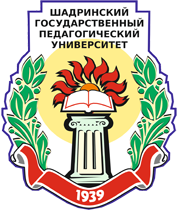Особенности употребления этикетных формул приветствия в эпистолярном наследии И.С. Тургенева
Features of etiquette greeting formulas’ use in the epistolary heritage of I. S. Turgenev
Аннотация
В статье рассматриваются особенности авторских обращений, которые использует И.С. Тургенев в своих посланиях, написанных в период с 1831 по 1883 год частным лицам. На основе методов сплошной выборки фактического материала, лингвистического наблюдения и описания исследуемых языковых конструкций было установлено, что в зависимости от степени близости отношений с адресатом и тематики повествования писатель употребляет не только традиционные, но и индивидуально-авторские формулы приветствия. Интерес к данной теме объясняется тем, что в настоящее время в связи с развитием электронной системы сообщений эпистолярный жанр уходит в прошлое, утрачивается культура личной переписки, поэтому считаем целесообразным обратиться к традициям авторских посланий, для того чтобы возродить внимание к жанру эпистолярия. Результаты данного исследования могут быть использованы при анализе частной переписки русских писателей, а также при изучении вузовских курсов «Культура речи», «Практическая стилистика русского языка» и «Филологический анализ текста».
Abstract: The article examines the features of the author's appeals used by I.S. Turgenev in his messages written in the period from 1831 to 1883 to private individuals. Based on the methods of continuous sampling of factual material, linguistic observation and description of the studied language constructions, it was found that, depending on the degree of closeness of relations with the addressee and the subject of the narrative, the writer uses not only traditional but also individual author's greeting formulas. The interest in this topic is explained by the fact that at present, due to the development of the electronic message system, the epistolary genre is becoming a thing of the past, the culture of personal correspondence is being lost, therefore we consider it advisable to turn to the traditions of author's messages in order to revive attention to the genre of epistolary. The results of this study can be used in the analysis of private correspondence of Russian writers as well as in the study of university courses “Culture of speech”, “Practical stylistics of the Russian language” and “Philological text analysis”.






